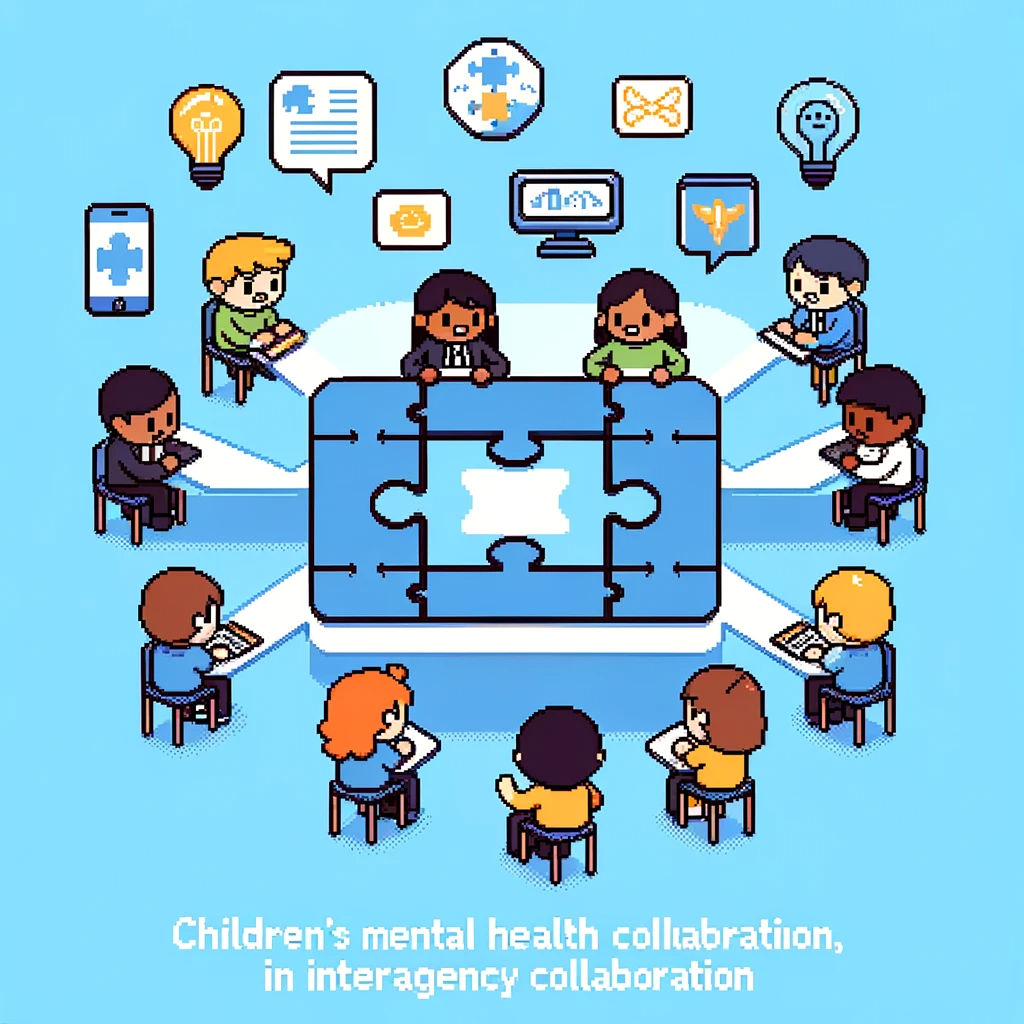In children’s mental health services, the efficacy and efficiency of interagency collaboration have been subjects of increasing focus. The paper “Multilevel Confirmatory Factor Analysis of a Scale Measuring Interagency Collaboration of Children’s Mental Health Agencies” by Robert F. Dedrick and Paul E. Greenbaum delves deep into this topic, offering valuable insights and empirical data through the Interagency Collaboration Activities Scale (ICAS).
The Essence of Interagency Collaboration
Interagency collaboration is defined as mutually beneficial relationships entered into by two or more organizations to achieve common goals. It’s about sharing responsibility, developing common goals, and working cohesively at all organizational levels. This collaboration is particularly crucial in the children’s mental health sector, where service fragmentation and multiple agency involvements often hinder effective care delivery.
The Importance and Challenges
While the value of interagency collaboration is widely recognized for its potential to address complex needs and improve service utilization, it’s not without its challenges. Diffusion of responsibility, reduced service quality, and at times, negative outcomes are cited as potential downsides. The paper underscores the need for empirical evidence to support the strategies and outcomes of such collaborative efforts.
The Interagency Collaboration Activities Scale (ICAS)
At the heart of the study is the ICAS, a 12-item scale measuring three domains of collaborative activities within children’s mental health agencies: Financial and Physical Resources, Program Development and Evaluation, and Collaborative Policy Activities. This tool represents a significant advancement in measuring and understanding the nuances of interagency collaboration, accounting for individual and agency perspectives through multilevel confirmatory factor analysis (MCFA).
Key Findings and Implications for Practice
The study’s multilevel approach revealed that the three-factor model is consistent across individual and agency levels, validating the construct of the ICAS. However, the strength of relationships among the three factors varied between the two levels, indicating that while the constructs are stable, their interactions are influenced by the level at which they are measured. This distinction is crucial for practitioners and policymakers as it highlights the need for tailored strategies addressing individual and organizational dynamics in interagency collaboration.
Evaluating Interagency Collaboration
The research also emphasizes the importance of considering the multilevel structure of organizational data in psychometric evaluations. Traditional single-level analyses might not accurately reflect the complex dynamics of interagency collaboration. By employing multilevel analysis, the study provides a more nuanced and reliable understanding of the collaborative processes, offering a robust framework for assessing and enhancing interagency collaboration practices.
Moving Forward
The study concludes by advocating for further research with larger samples to validate and refine the ICAS and its underlying structures. It also suggests the need for more comprehensive simulation studies to establish refined guidelines for sample sizes and model complexities in multilevel analyses, ensuring that future interagency collaboration investigations are robust and representative.
Conclusion
The article by Dedrick and Greenbaum is a pioneering exploration into the measurement and understanding of interagency collaboration within children’s mental health services. The ICAS and the study’s multilevel analytical approach provide a solid foundation for future research and practical applications, offering pathways for enhanced collaboration and improved outcomes for children’s mental health services.
Join the Vanguard of Public Health Today!
Are you ready to be at the forefront of health advocacy and research? ‘This Week in Public Health’ brings you weekly insights and updates that matter most. From breakthrough research to groundbreaking community initiatives, our newsletter is your ticket to staying ahead in the rapidly evolving world of public health. Subscribe for free and be part of the change you wish to see!

